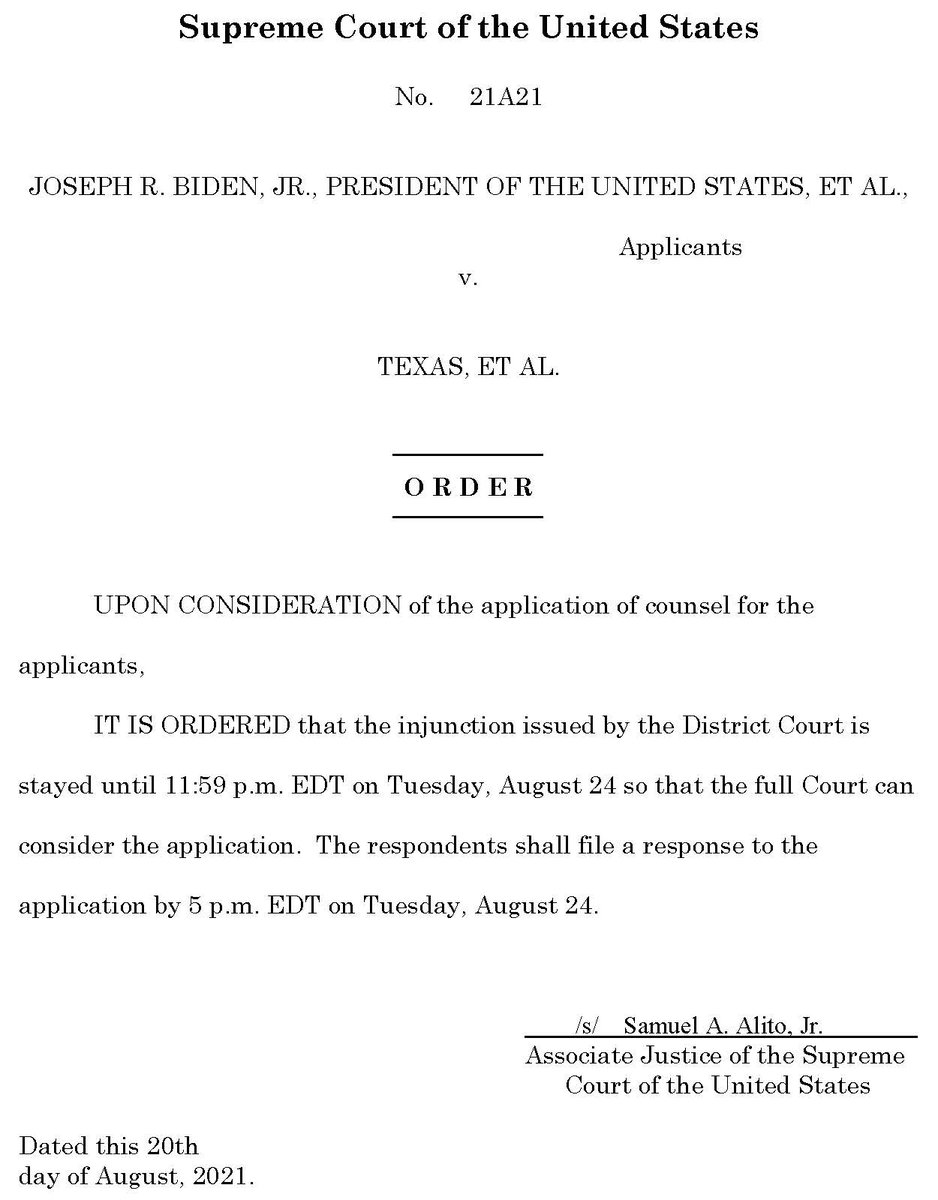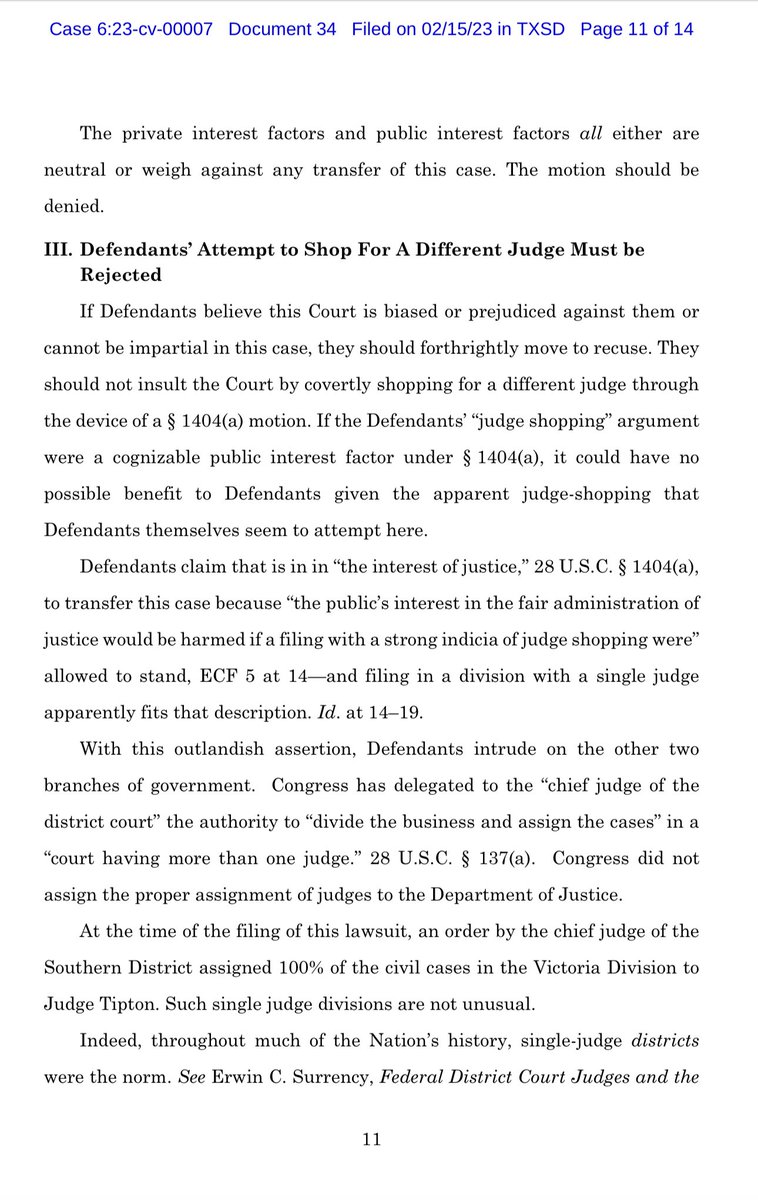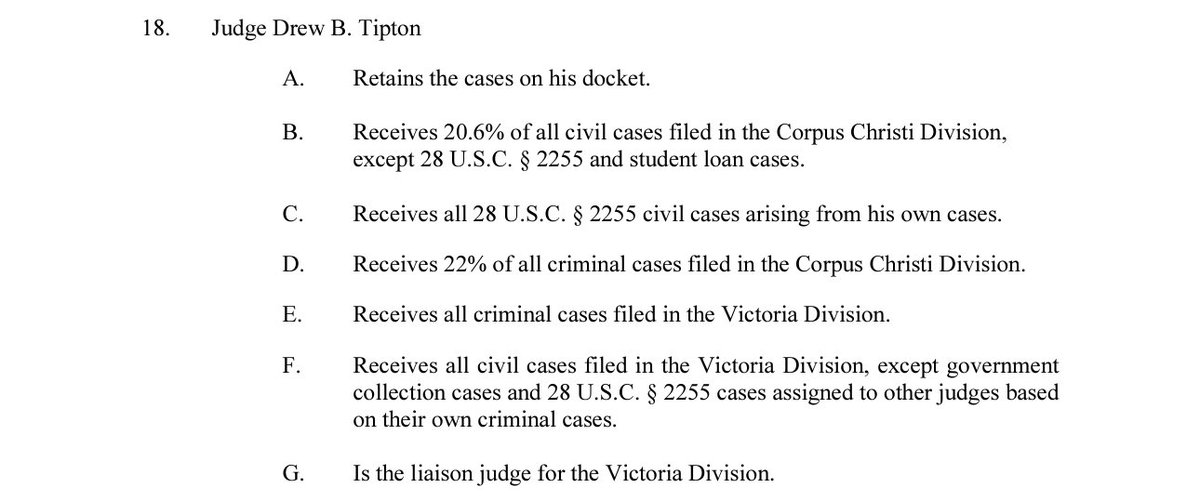#SCOTUS and #mifepristone: A brief🧵on what to expect.
First, DOJ and Danco will file applications for emergency relief later this a.m. to freeze the rest of Kacsmaryk's order.
They'll seek two things:
1. A stay pending appeal; and
2. An "administrative" stay in the interim.
First, DOJ and Danco will file applications for emergency relief later this a.m. to freeze the rest of Kacsmaryk's order.
They'll seek two things:
1. A stay pending appeal; and
2. An "administrative" stay in the interim.
Because the rest of Kacsmaryk's order goes into effect at midnight tonight (12:00 a.m. CT Saturday), there isn't time for the full Court to rule on the full stay pending appeal.
Instead, the focus today is the request for an "administrative" stay (freezing things temporarily).
Instead, the focus today is the request for an "administrative" stay (freezing things temporarily).
That request goes to Justice Alito as Circuit Justice for the Fifth Circuit.
And even though you may think the result is thus foreordained, Alito (like the other Justices) has previously *issued* administrative* stays even when he ultimately didn't vote for a stay on the merits:

And even though you may think the result is thus foreordained, Alito (like the other Justices) has previously *issued* administrative* stays even when he ultimately didn't vote for a stay on the merits:


My best guess is that we see a similar process here—with Alito issuing an administrative stay, ordering the plaintiffs to respond by early next week, and teeing up a ruling by the full #SCOTUS sometime next week as to whether or not the rest of Kacsmaryk's order will be frozen.
There's nowhere near a 100% chance of that happening, but I think the odds are well better than not, given the equities, that there's an administrative stay—and that the big ruling comes next week when the full Court has had time to consider the matter a bit more carefully.
/end
/end
• • •
Missing some Tweet in this thread? You can try to
force a refresh

 Read on Twitter
Read on Twitter













